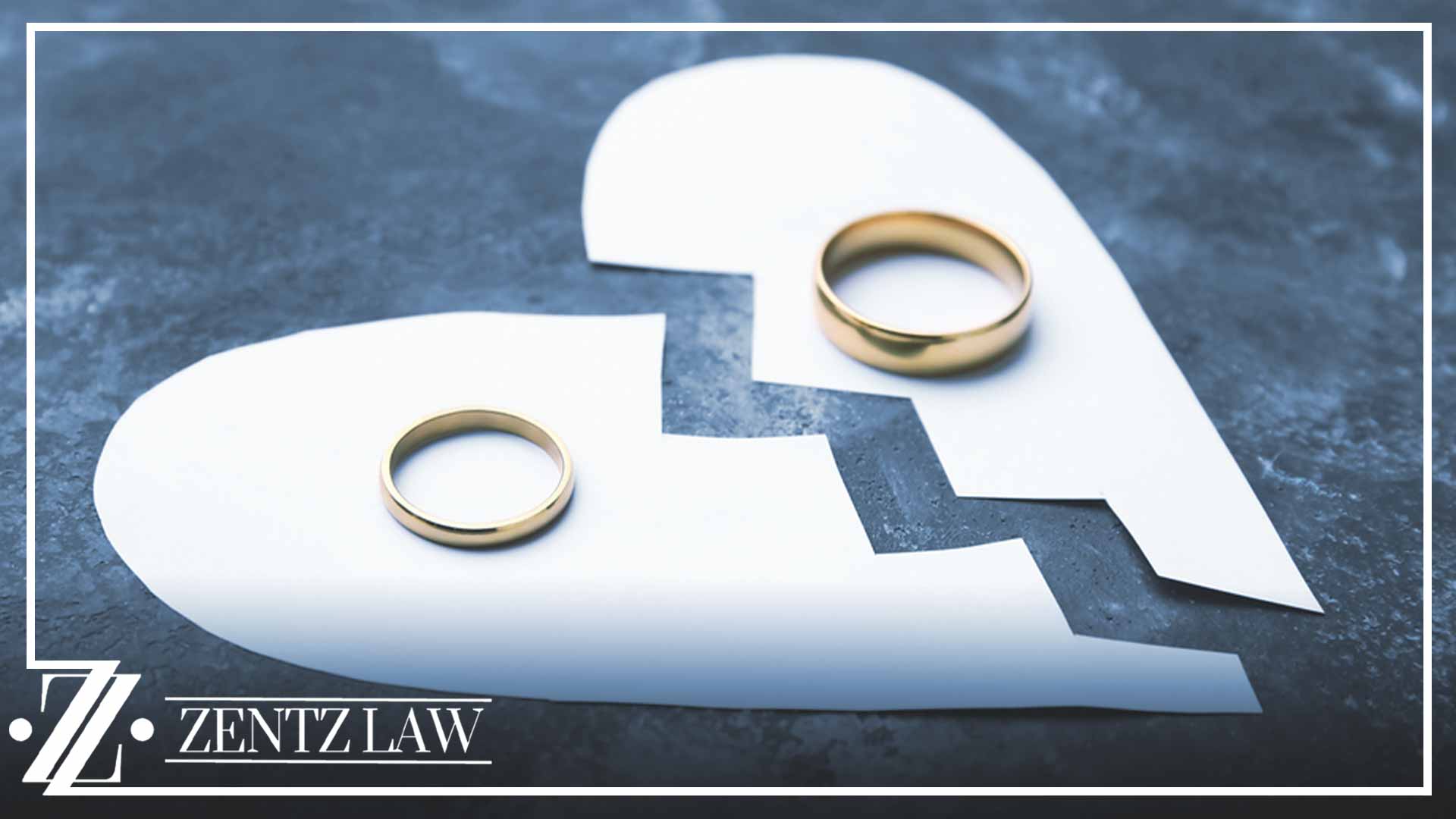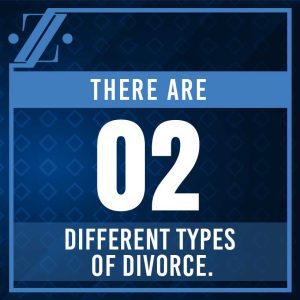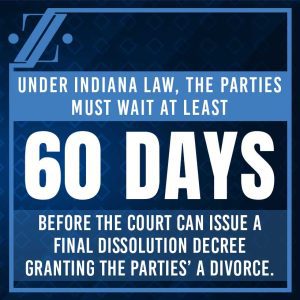
Indianapolis Divorce Lawyer
Divorce proceedings can be wrought with emotion, which can make it difficult to maintain a clear head for decision-making. The choices you make during divorce, however, can have a significant impact on your life and shape your future, as well as your children’s futures. Thus, the best way to ensure a satisfactory outcome is to work with divorce lawyers who can offer guidance and support when navigating the process and making the right decisions.
At Zentz Law, our Indianapolis divorce lawyers have years of experience handling complex family law cases, including those involving divorce and legal separation for various forms of partnership. Our team is here for you and is just a phone call away. Contact us today at 317-220-6056 for a free consultation.
Legal Grounds for Divorce in Indiana
Indiana is a no-fault divorce state. This means you do not legally have to give a reason for wanting to file for divorce. If there is no specific reason or you do not want to give a specific reason, you can simply say you want to end the marriage due to irreconcilable differences.
It’s important to note that even if you do have a specific reason for wanting to file for divorce, you are still not obligated to give that reason. For example, some people who file for divorce may feel unsafe in their marriage and are the victim of domestic violence. Thus, they might not want to go on record and may simply want to end the marriage without having to give details as to why.
Whatever the reason, you are not obligated to inform the court. If you do not want certain information about why you are divorcing to go on record, then you can simply file without giving grounds for the divorce other than irreconcilable differences.


An Indiana divorce attorney can help you navigate the process and work through the specified requirements to ensure the best possible outcome.

Divorce vs. Annulment vs. Legal Separation. What’s the Difference?
1. Divorce


There are two different types of divorce:
- Uncontested: In an uncontested divorce, the separating couple has no disagreements over any issues and legal processes involved, such as child support, custody of the children, and division of property.
- Contested: In a contested divorce, the couple cannot reach an agreement on one or more issues, even when legal counsel is involved. Thus, these cases are taken to court, where a judge will help resolve their disputes.
2. Annulment


A marriage may be void on the following grounds:
- one spouse was underage at the time of marriage
- one spouse was convinced to marry by fraud
- one spouse was coerced to get married (married “under duress”)
- one spouse didn’t know the other spouse was already married at the time of marriage (bigamous marriage)
- one spouse was mentally incompetent at the time of marriage
- the spouses are more closely related than second cousins, or
- the marriage is a common law marriage that happened after January 1, 1958.
3. Legal Separation
Legal separation is a separation between two parties that is judicially recognized. However, this does not mean that the marriage is officially dissolved. Neither party will be allowed to remarry, and they will still have legal ties to one another. A legal separation also must be officially approved by the court — you cannot simply live separately and call it a legal separation. The court may grant a decree for a separation of the parties for a period not to exceed one year.
How Does the Division of Property Work in Divorce?


Assets and debts acquired prior to and during the course of the marriage, up to the date of filing for divorce, are considered joint property of the marriage (this includes student loan debt). Generally, the court will presume to divide property equally as couples share a 50/50 interest in marital assets. However, there are some factors that can impact the equitable distribution of assets, meaning one party might get more than the other.
Such factors that can impact the distribution of property include:
- The contribution of each spouse to the acquisition of the property, regardless of whether the contribution was income producing
- The extent to which the property was acquired by each spouse before the marriage or through inheritance or gift
- The conduct of the parties during the marriage as related to the disposition or dissipation of their property
- Whether the parties commingled assets acquired prior to the marriage or if they kept the assets separate
- If one spouse makes significantly less money than the other (lower earning capacity)
- If a spouse made nonmonetary marital contributions, such as childcare, household chores, homemaking, cooking, etc.
How Long Does the Divorce Process Typically Take?


An uncontested divorce will likely resolve much faster and will be less costly. This is why working with an attorney who can help you and your spouse reach an agreement can be incredibly beneficial. If the divorce is contested and you cannot reach an agreement, the case will go to trial which will draw the process out. Some counties will require the parties to mediate prior to a final hearing. In this case, you will also need to work with an attorney who can defend your rights and advocate for your best interests.
How Divorce Lawyers Can Help
Though it is not required for you to work with an attorney when filing for divorce, it is advised that you at least consult one. Working with a divorce attorney could save you a great deal of time and money by helping you and your spouse come to an agreement.
That said, a divorce lawyer can also help if your case does go to trial. Plus, there are a number of other services a divorce lawyer can provide to help the process go a lot smoother, which includes:
- Mediation


- Child custody
- Parenting time
- Child support
- Spousal Maintenance
- Property division
- Legal separation
Overall, a lawyer will offer you guidance so you will know what to expect and can better navigate the divorce proceedings to mitigate as many setbacks as possible.
Zentz Law – Divorce Lawyers in Indianapolis


If you are in need of legal assistance, contact our Indiana divorce lawyers at Zentz Law Call us at 317-220-6056 today to set up a free consultation.
***Please note: This page is not intended to give specific legal advice but is meant for information purposes only. Contact us to discuss your case***

